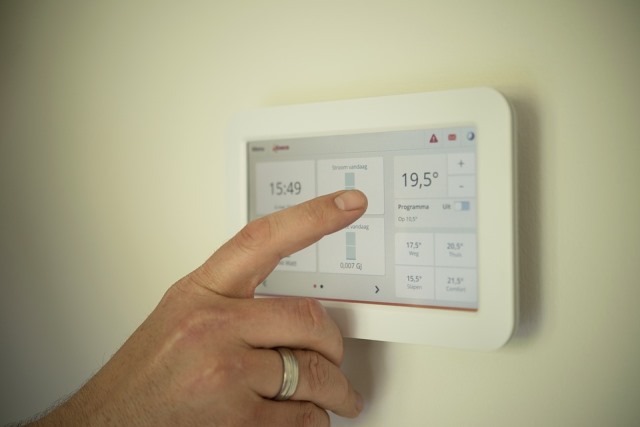When moving into a new home, your initial concerns are all about getting everything unpacked and put into position as quickly as possible. However, once the dust has settled from that, something else that you should look into is the energy efficiency of the home.
Most homes are terribly wasteful and are using a lot of energy when they don’t need to be. This can end up costing homeowners hundreds of dollars a year. Several habits that most of us exhibit from time to time also waste a lot of energy.
In addition to just saving money, using energy more efficiently is a great way to help protect and save our environment. Without any further ado, read on to learn about some home energy improvements you can make once you move into a new home.
Switching Your Energy Provider
One of the first things to do in order to make home energy improvements is to consider switching your energy provider. If you live in a deregulated market, be sure to take advantage of your freedom. Different providers can have different costs, as well as offer different services or have features unalike one another.
While you may reach out to each provider directly to learn about what they have to offer, you should look to compare electricity rates online to help your decision and learn more in less time. You could perform a little bit of research to see what sorts of “green” options are available. Adding solar panels to your home is also something that should be considered. Sure, they can cost a little, but will often pay for themselves quite quickly.
Installing Efficient Appliances
Some of the biggest energy hogs in your entire home are your appliances. This includes things like washing machines, dishwashers, ovens, microwaves, fridges and dryers. They perform very useful tasks for us, but it comes at a cost. If you want to make your home more efficient when it comes to energy, look to get rid of old and outdated appliances, and replace them with newer and more efficient models.
These will operate in a similar fashion, do the same job, only while using less energy in the process. Also, even though your new appliances are efficient, you should still look to monitor and limit how often you use them. Instead of running the dishwasher or washing machine multiple times a week when they’re half full, consider waiting until they are full.
Automate Where You Can
Another home energy efficiency tip that more families and households should take advantage of is automation. Using smart energy options can reduce your costs drastically, and also simplify your life. While many different processes in and around your home can be automated, two of the most important are your lights and your heating/cooling.
Automating your lights can be done with smart bulbs, motion sensors, dimmers and even apps on your phone. These allow you to automatically turn off/on lights when you exit/enter a room. Also, be sure to use efficient LED bulbs as they use a small percentage of the energy that traditional bulbs will.
When it comes to heating and cooling automation, you want to use a smart thermostat. These will learn your heating and cooling habits, and begin to make the adjustments automatically. Even if you forget to heat or cool your home sometimes, your smart thermostat has got you covered. Many of them can also be programmed ahead of time to ensure the home is always the right temperature for your needs.
The tips and information within this article will be able to help ensure your home is more energy-efficient. Whether you do it to help the environment or to save money on electricity and energy bills, having an efficient home is generally a good idea.
Baburajan Kizhakedath

